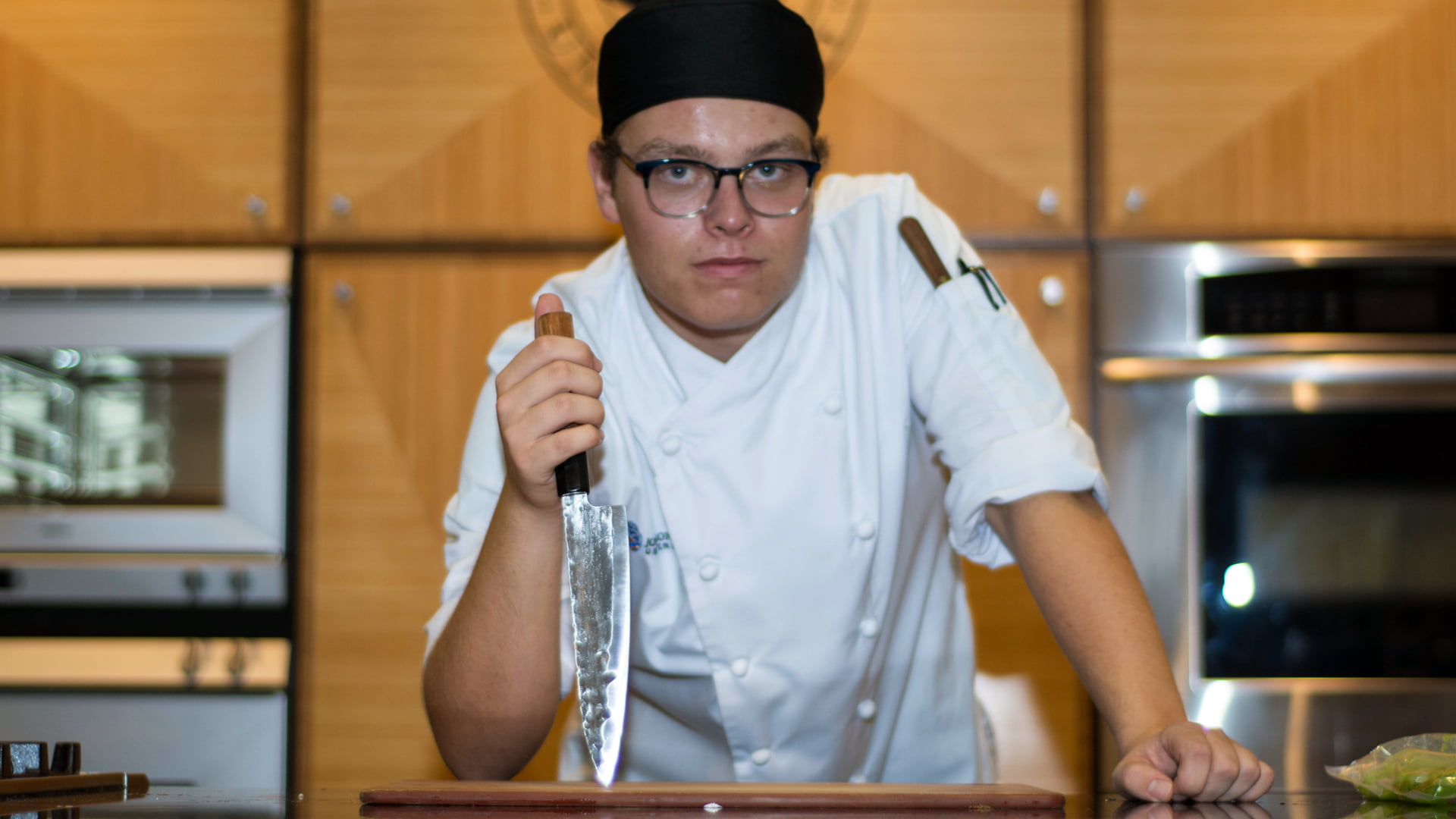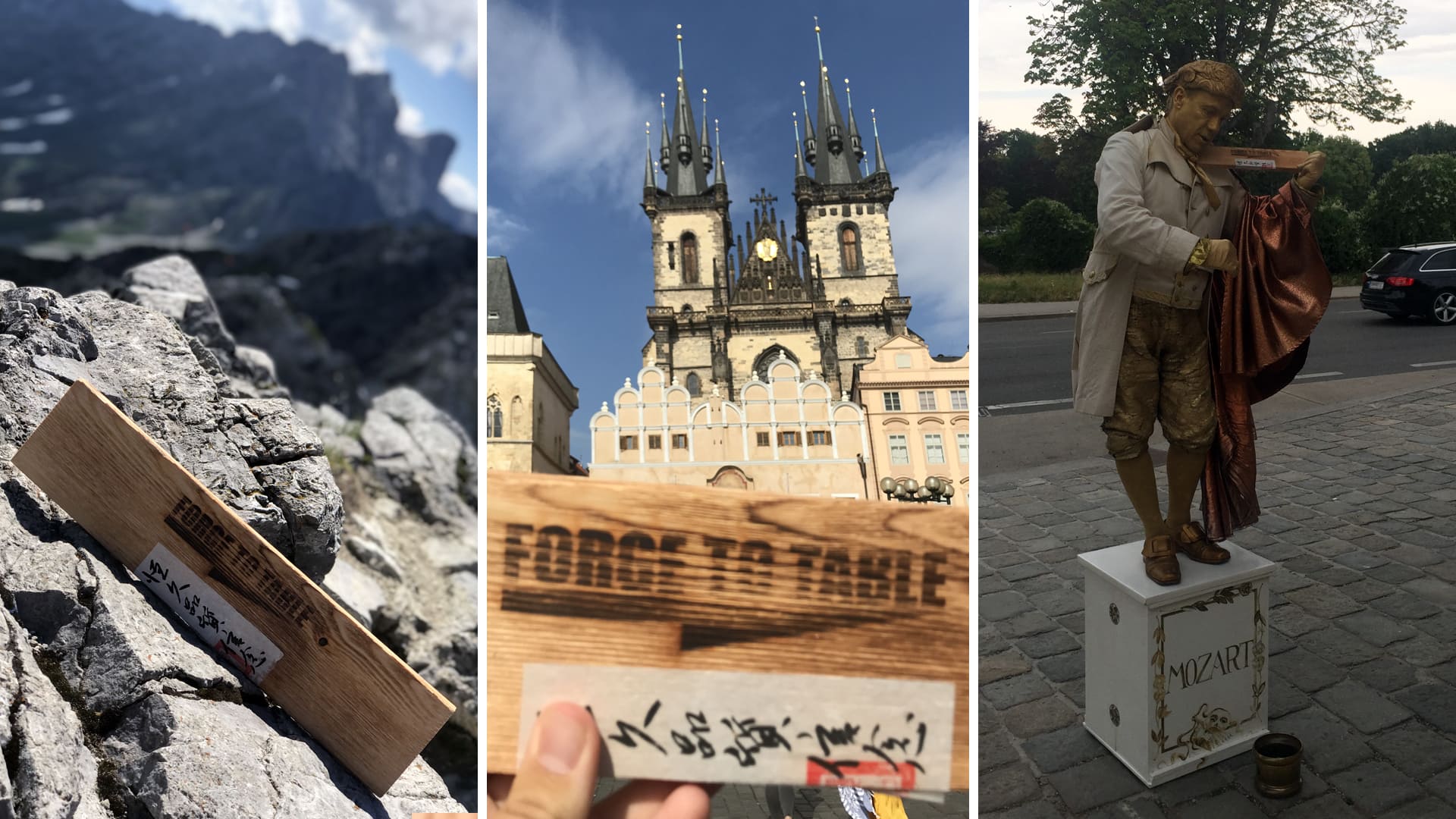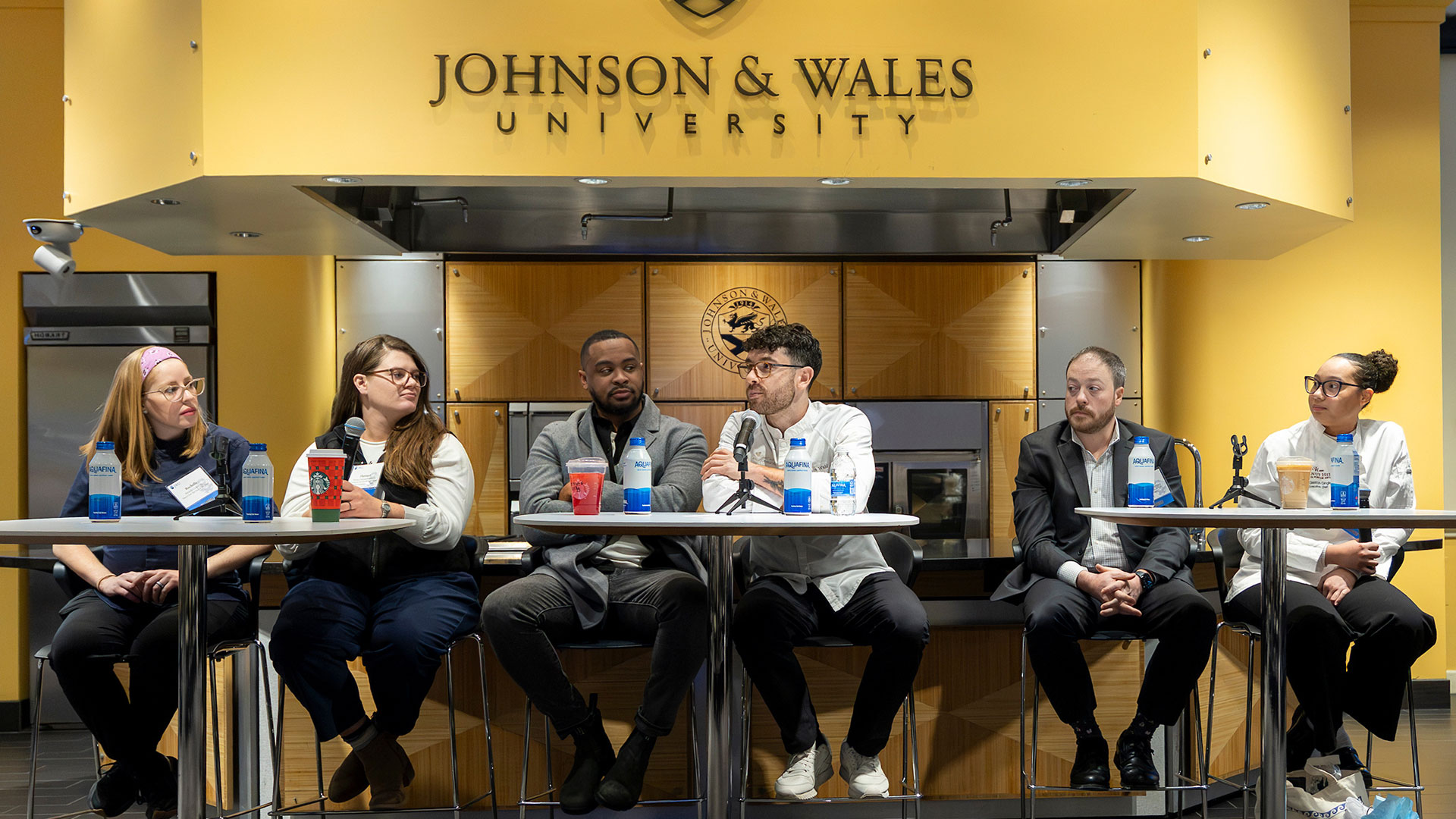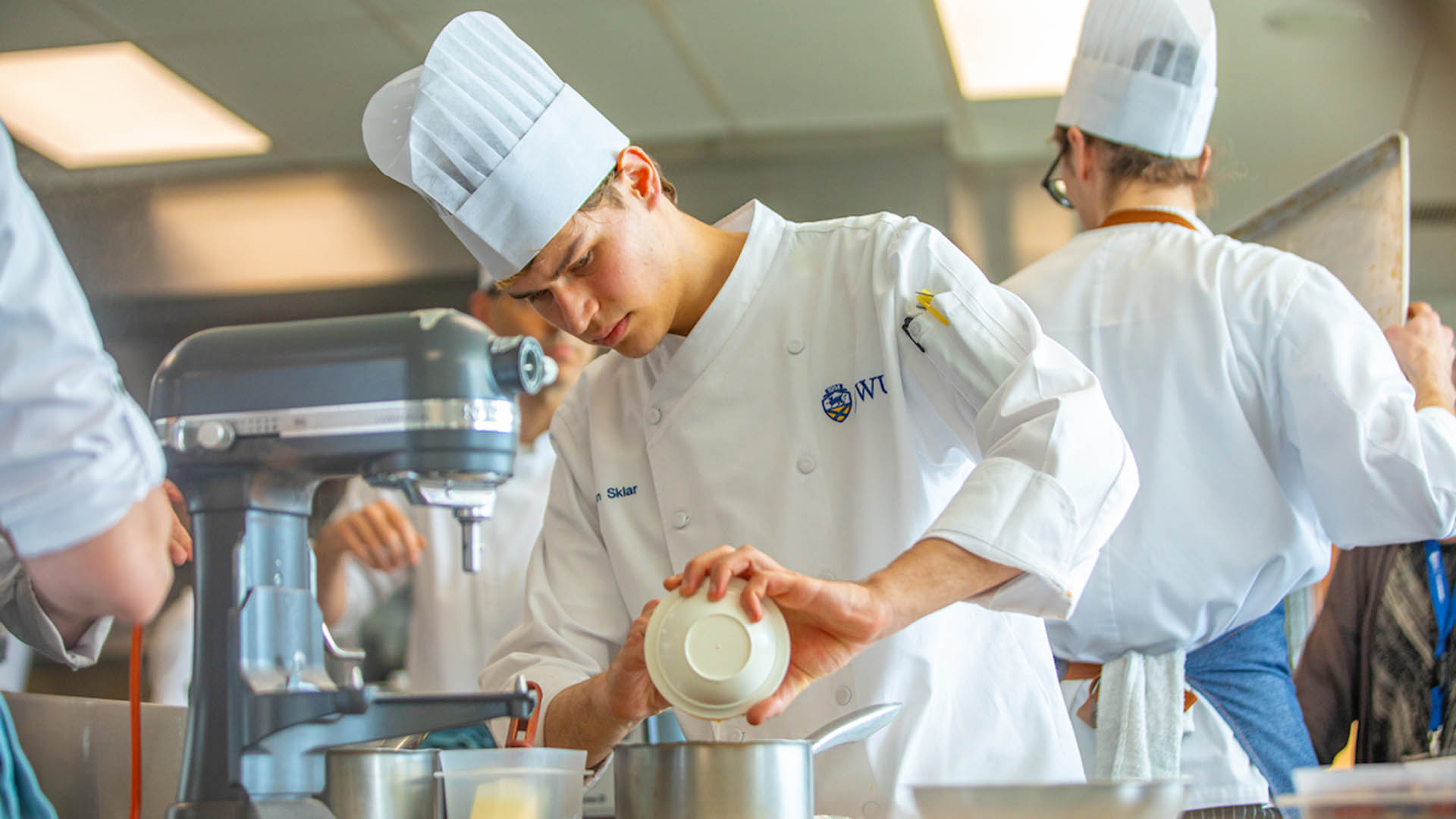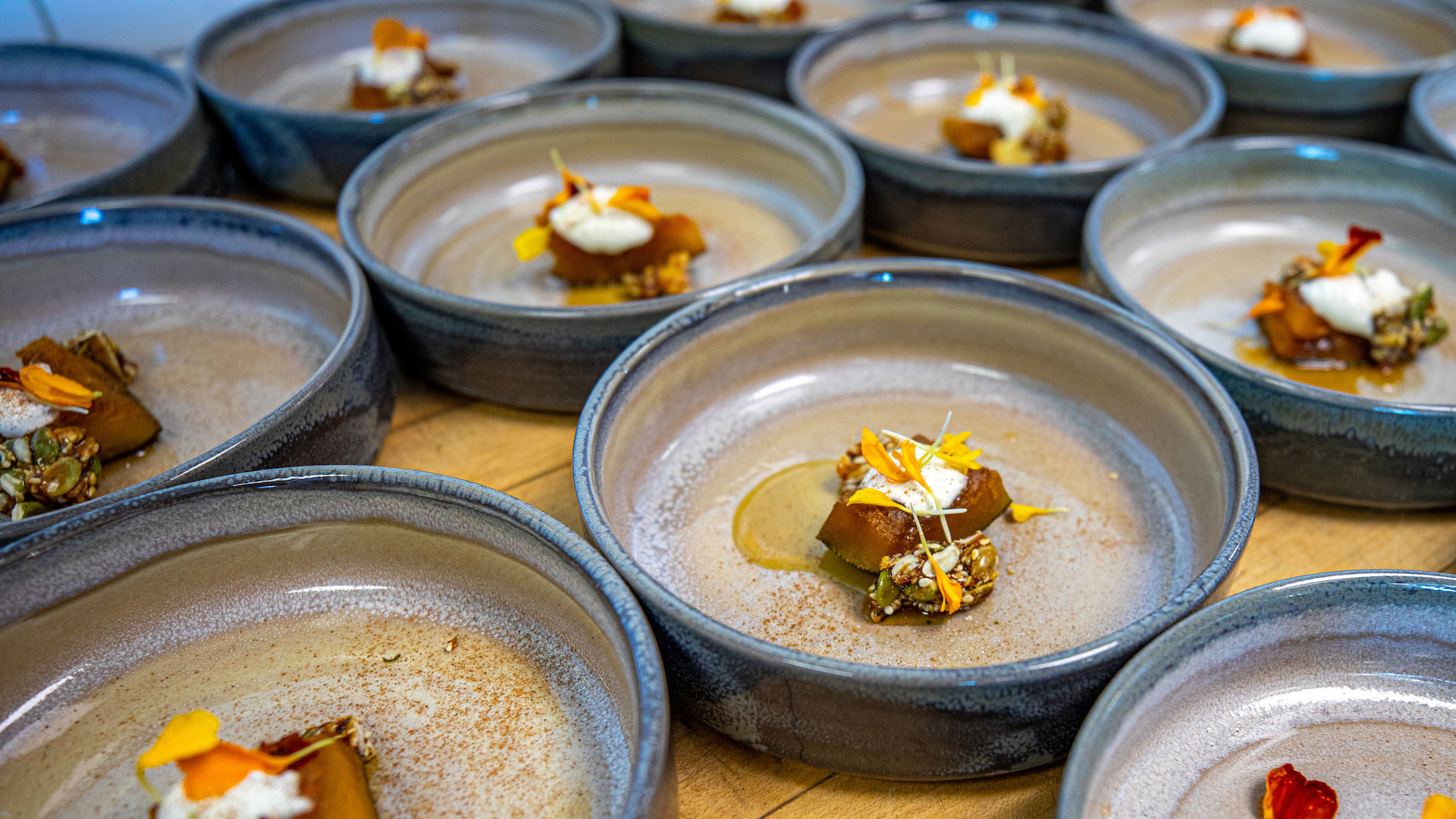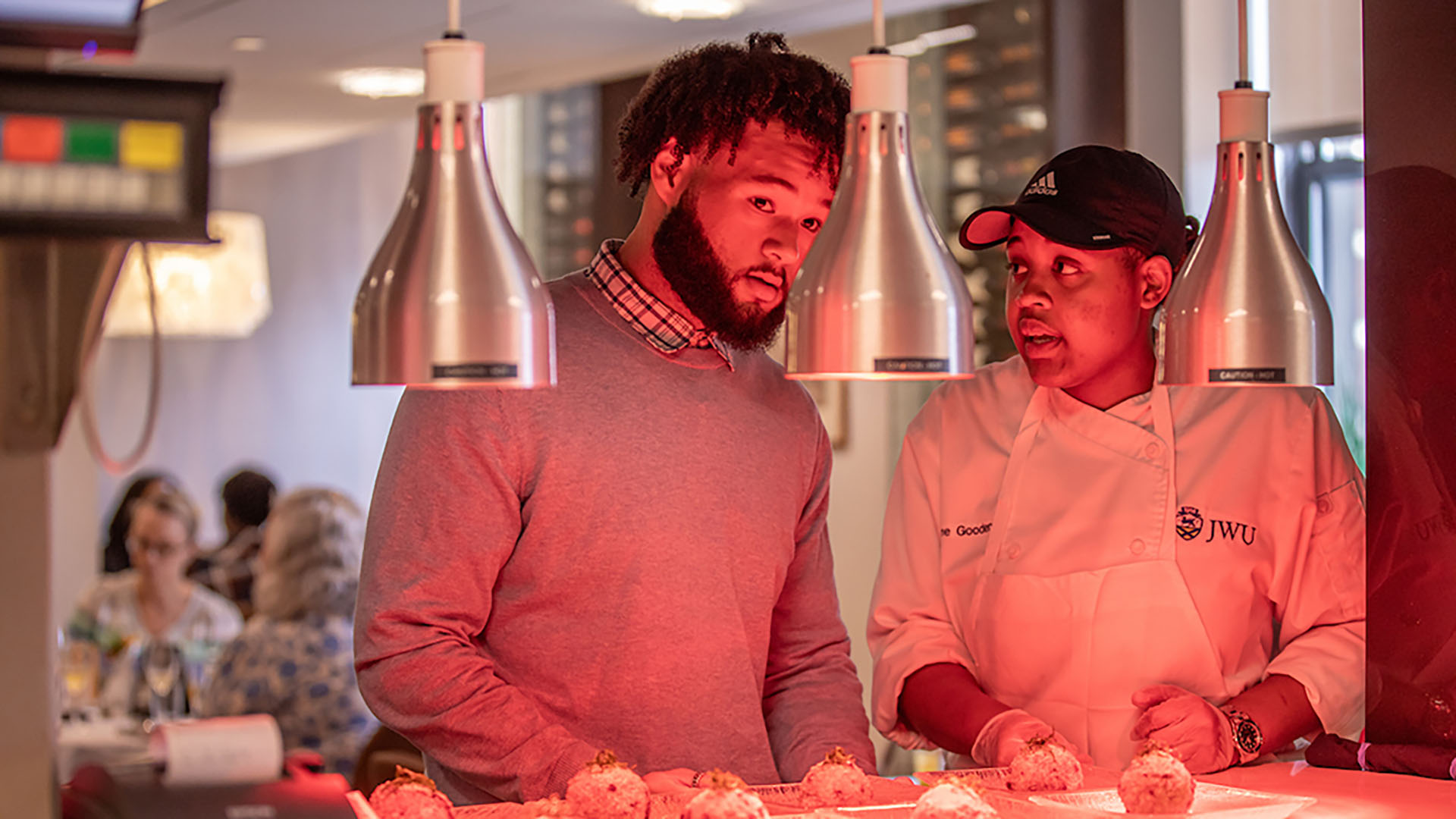Forge to Table: How Noah Rosen Put His Entrepreneurship Major to Work
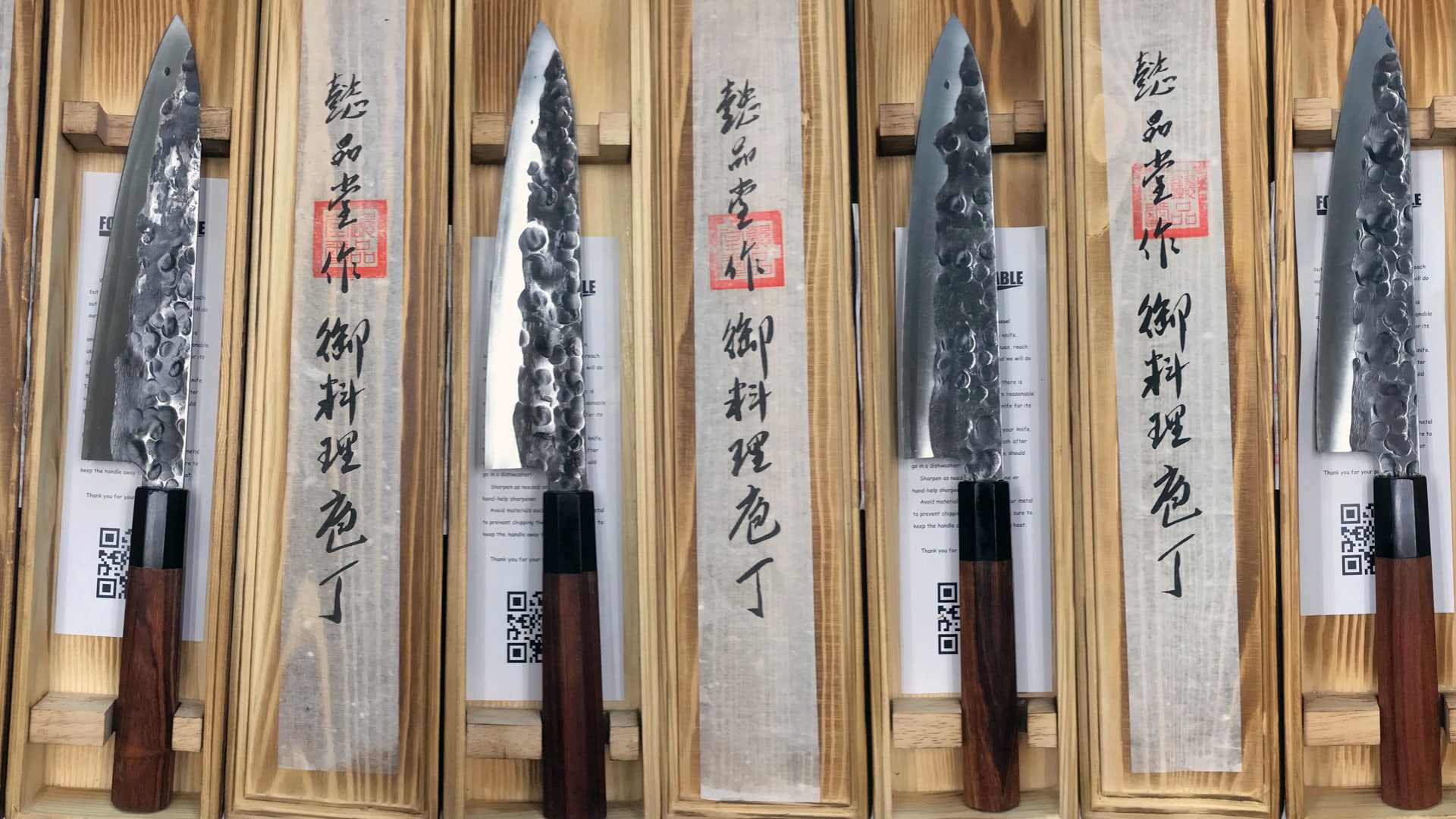
You never know when the next great opportunity in your life might be just around the corner.
Culinary Arts and Food & Beverage Entrepreneurship double major Noah Rosen '19 calls himself a “total knife nerd” who honed his culinary fundamentals at Orange County School for the Arts, where he attended high school. Now at JWU, he has put himself on a fast track to complete his dual degree and move on to his MBA. (If culinary arts are his primary passion, entrepreneurship runs a close second.)
Each year, Noah’s father travels to the International Home & Housewares Show in Chicago. Last year, Noah tagged along and decided to explore the less-trafficked lower floors of the exhibition space. Even there, vendors usually have flashy displays and all kinds of swag. Noah did a double-take as he passed a woman showing off an amazing display of beautifully-crafted knives at a bares-bones table.
"As soon as I realized the knives could be customized + made affordable for students, I placed an order."
“My first thought was, ‘Can I buy these?’ I ended up talking to Carol for more than 2 hours. Her family makes Japanese-style knives in China, and since she is the only one who speaks English, they saved up to send her to the Housewares show,” Noah tells me. “As soon as I realized that the knives could be customized and made affordable for students, I decided to place an order.”
Forge to Table was born. Noah decided to start with a knife-kit essential, an 8" gyuto, or chef’s knife. From March to October, Noah Skyped back and forth with the team in China to arrive at an affordable, multipurpose knife well-suited to the average culinary student’s needs and budget.
“The major difference between Japanese and European-style knives is primarily the weight and balance,” explains Noah. “These knives are high-carbon stainless steel, and are so thin they can take a remarkably sharp edge.” (Forge to Table’s Instagram feed showcases the knife’s remarkable slicing power — tomatoes, beware!)
Noah recently turned to Kickstarter to help him develop his next releases, a 6" petty (utility) knife and a 10" Sujihiki knife built for slicing. Over email, he reflected on what’s he’s learned through this whirlwind process of building Forge to Table from the ground up — and his advice for other students looking to start their own businesses while at JWU.
What have you learned about knives since you started Forge? Do you have even more respect for the process by which they’re made?
Now I’m the one testing, for example, 5 of the same knife with different steels to see which one rusts and which chips and which holds its edge and finding exactly what the ideal balance is — all to create the ideal knife. As a result, I not only have more respect and admiration of the craftsmanship of a handmade knife, but I’ve developed a profound appreciation of the difference between a factory-made knife and a handmade one!
For chefs, having the right tool for the job is crucial. A dull knife can slow you down — or worse. How have you customized Forge knives to serve as THE go-to knives for just about any situation?
A dull knife is the MOST dangerous thing in a kitchen. The best knife can hold an edge but still sharpens easily. It won’t rust too swiftly. There must be a balance of ideal flexibility and thickness of the blade. We can’t forget about the handle either — Japanese knives have different shapes and the best for every hand out there, large or small, is the octagonal shape, which provides a better grip and is equally suited for right- or left-handed use.
All of these factors help determine the specs of Forge to Table knives. The VG10 high-carbon stainless steel balances rust resistance, edge retention, and ease of sharpening. The rosewood handles look great but will also actually conform to the hand over time. The hammered, blacksmith finish doesn’t just look good — along with the thin blade, it allows for an easy glide through anything you’re chopping.
"Find your passion, create a real concept and spend your education refining it."
You collaborate with your team in China over Skype. What’s been the most interesting thing you’ve learned about collaborating cross-culturally?
The phone calls, emails, and video chats with my team and the forge keep me on my toes 24/7. Working internationally and across a language barrier certainly teaches you to speak slowly and clearly. It’s critical that everyone know exactly what I expect in my final product, but the team I work with is absolutely dedicated to their craft.
Are you a better chef because of Forge? In what ways has this project enhanced your culinary skills?
Without a doubt, owning a knife company where I’m always testing new products and refining designs has made it absolutely paramount that my knife cuts are perfect. I prepare a lot of meals for people and at events, but becoming a better chef is a natural progression of studying, planning, cooking and enjoying food with a passion.
How has Forge helped you to sharpen your entrepreneurial skills? What advice would you have for students looking to mix culinary/food studies with entrepreneurship?
Being able to run a business in sequence with my classes — from accounting to business plan creation — has strengthened both my business and personal skills. Since most food businesses cannot be started from school, find your passion, create a real concept and spend your education refining it. If you have a class project, make it about your ideal business, so in a few years you can look back on your time at JWU as the jumping-off point to making your dream a reality.
Since this interview appeared, Forge to Table has continued to expand their offerings, and now their website includes user-friendly recipes from fellow JWU alum Sam Burgess.
BELOW: NOAH ROSEN POSING WITH THE ORIGINAL FORGE KNIFE RELEASE. // THE FORGE KNIFE ON A ‘WHERE’S WALDO?’ TOUR OF EUROPE THIS PAST SUMMER.
